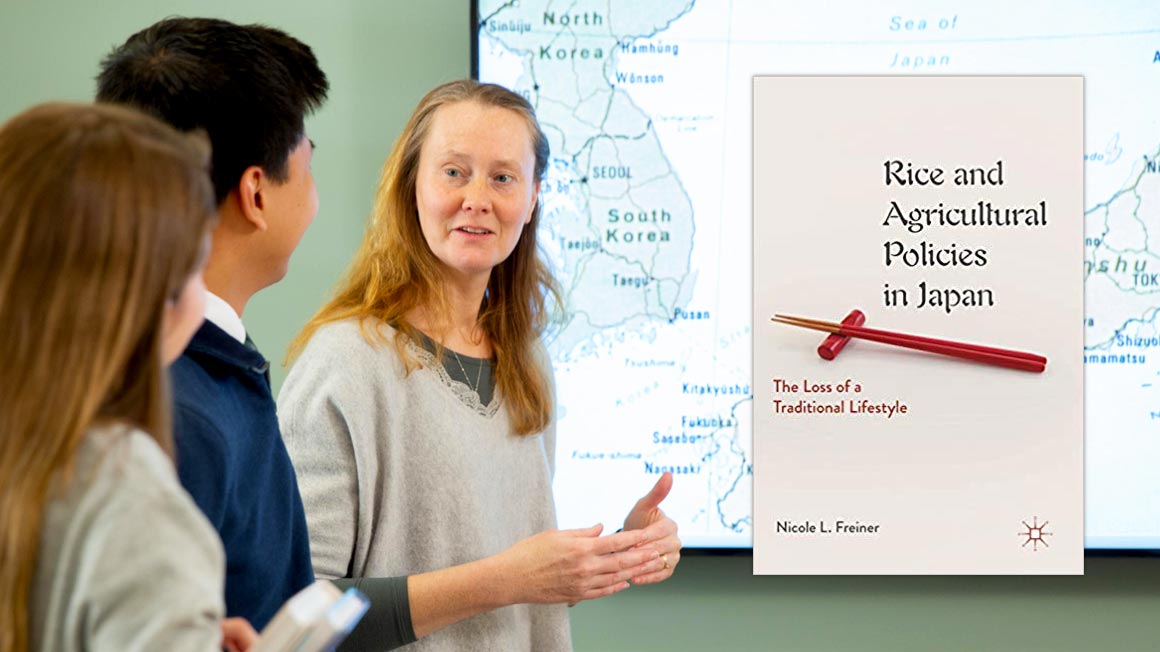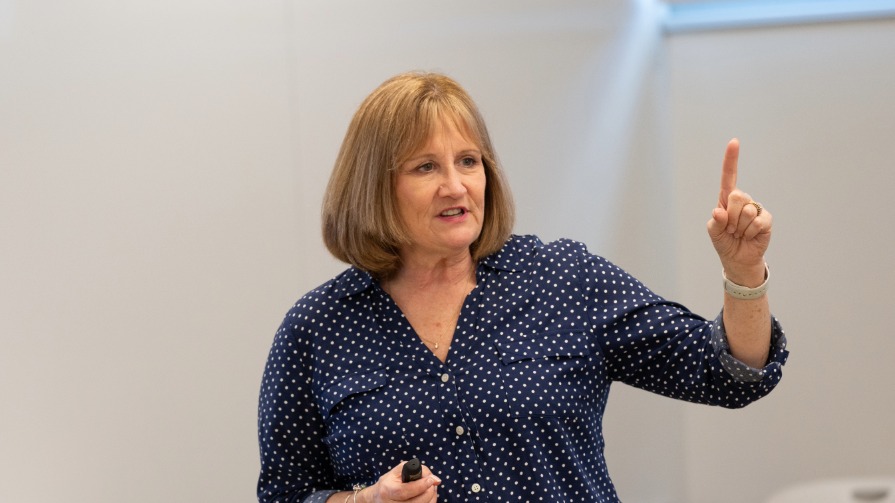SMITHFIELD, RI - Political Science Professor Nicole Freiner’s latest book, Rice and Agricultural Policies in Japan: The Loss of a Traditional Lifestyle (Palgrave MacMillan), chronicles the experiences of Japan’s rice farmers through original interviews conducted in Japanese. Freiner argues that current agricultural and trade policies, including the Comprehensive and Progressive Agreement for Trans-Pacific Partnership (CPTPP) are undermining important cultural traditions in Japan.
The CPTPP is a new set of trade rules for the Asia-Pacific region, which accounts for more than 15 percent of global trade and 500 million consumers, according to Freiner in her December 2018 article in The Diplomat. These new policies push the country’s important agricultural practices like rice production to the global stage of competition. While agreements like the CPTPP are intended to open markets to trade, much depends upon the rules embedded within them, especially when important products such as food are traded. The issue of food security is particularly relevant for agricultural policy in Japan, a country with a history of rice shortages.
Freiner, who teaches courses on comparative, environmental and global politics, believes that with political will and cooperation between leaders, policy makers, and farmers, it is possible to allow for progress and prosperity in a way that and preserves and prioritizes Japan’s “sacred “traditions.”
The world is watching
Many countries experience political and economic challenges that come with development, mechanization and shifting diets. While the population of the world is expanding, available land for agriculture is diminishing and there is no regime that deals comprehensively with food and agriculture at the global level. Examining how Japan navigates through these competing forces is instructive for the leaders of these countries as well as individuals and organizations who face similar concerns.
Deeper exploration through Association for Asian Studies grant
Freiner recently received a grant from the Northeast Asia Council of the Association for Asian Studies (AAS) to travel to Japan this summer to expand her study of Japanese tradition and agriculture, specifically by examining seed culture. The competitive AAS Grants are awarded to a select group of scholars for focused projects. Her first book titled “The Social and Gender Politics of Confucianism: Women and the Japanese State” (2012 Palgrave MacMillan) explores the impact of Japanese nationalism and Confucian philosophy on women with a focus on areas of education and social security and women’s roles in these areas. She has written numerous articles on the state and civil society in Japan focusing on agriculture and environmental policy, and will be working on her third book this summer. Friener holds a Ph.D. from Colorado State University. She will be working on a third book proposal this summer.






